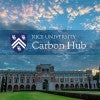
Holocaust’s defiant diplomats: Jewish Studies exhibition honors extraordinary envoys
Rayzor Hall lobby now showing ‘Beyond Duty’ throughout spring semester.

Holocaust’s defiant diplomats: Jewish Studies exhibition honors extraordinary envoys
Rayzor Hall lobby now showing ‘Beyond Duty’ throughout spring semester.

New trade agreement good for US digital products, says Baker Institute expert
HOUSTON – (Jan. 27, 2020) – The United States-Mexico-Canada Agreement (USMCA) sends a clear and welcome message acknowledging the enormous importance of digital products produced in the U.S. for sale around the world, according to a report from the Center for the United States and Mexico at Rice University’s Baker Institute for Public Policy.

Climate change 'a strategic dilemma' for Persian Gulf, Baker Institute expert says
Climate change poses a strategic dilemma for oil-exporting states of the Persian Gulf, according to a new paper by an expert in the Center for Energy Studies at Rice’s Baker Institute for Public Policy.

USMCA trade pact will reap 'significant economic benefits,' says Baker Institute expert
HOUSTON – (Jan. 15, 2020) – The Senate is expected to approve the United States-Mexico-Canada Agreement this week, and the deal stands to benefit all three countries, according to an expert at Rice University’s Baker Institute for Public Policy. David A. Gantz, the Will Clayton Fellow in Trade and International Economics at the Baker Institute, is available to discuss this development and its implications.

Abbott's refugee refusal sets 'dangerous precedent,' says Baker Institute expert
HOUSTON – (Jan. 13, 2020) – Texas Gov. Greg Abbott has become the first U.S. governor to announce his state will refuse to admit federal resettled refugees in 2020, citing the "broken" U.S. immigration system he said has put unfair pressure on border states.

Federal food program needs more 'clearly defined objectives,' Baker Institute expert says
HOUSTON – (Jan. 13, 2020) – Public health and anti-hunger advocates want an effective food assistance program for low-income Americans, but they disagree on several fundamental issues involved in tackling the problem, according to a new issue brief from the Center for Public Finance at Rice University's Baker Institute for Public Policy.

People, papers and presentations Jan 13, 2020
George Abbey, senior fellow in space policy at the Baker Institute for Public Policy, was elected to the Lone Star Flight Museum's Texas Aviation Hall of Fame. He will be inducted at a luncheon May 8 at Houston's Ellington Airport.

Former Russian foreign minister Kozyrev to speak at Rice's Baker Institute
HOUSTON – (Jan. 7, 2020) – Andrei Kozyrev, who served as foreign minister of Russia from 1991 to 1996, will discuss his book, "The Firebird: The Elusive Fate of Russian Democracy," and current developments in Russia at Rice University's Baker Institute for Public Policy Jan. 14.

Treat nonviolent drug offenses as public health issue, Baker Institute paper recommends
Drug use among people arrested for nonviolent drug offenses should be treated primarily as a public health issue, according to drug policy experts at Rice’s Baker Institute for Public Policy and the Texas Criminal Justice Coalition.

US confrontation with Iran: Energy experts from Baker Institute available for interviews
HOUSTON -- (Jan. 3, 2020) -- As tensions between the United States and Iran reach perilous levels, three experts in the Center for Energy Studies at Rice University's Baker Institute for Public Policy are available to speak with media about the implications for the markets and geopolitics.

Trump 'playing a high-stakes game with Iran,' says Baker Institute expert
HOUSTON – (Jan. 2, 2020) – The United States could take preemptive military action if it gets sufficient warning that Iran or its proxy forces are planning further strikes on American interests in the Middle East, Secretary of Defense Mark Esper said today. Joe Barnes, a foreign policy expert and the Bonner Means Baker Fellow at Rice University’s Baker Institute for Public Policy, is available to discuss this development and the state of U.S.-Iranian relations with the media.

Rice University launches bold climate change initiative with Shell
With initial support from Shell, Rice University has launched Carbon Hub, a climate change research initiative to fundamentally change how the world uses hydrocarbons. Carbon Hub's goal is a zero-emissions future in which hydrocarbons are not burned. Instead, they are split to make clean hydrogen energy and valuable carbon materials.